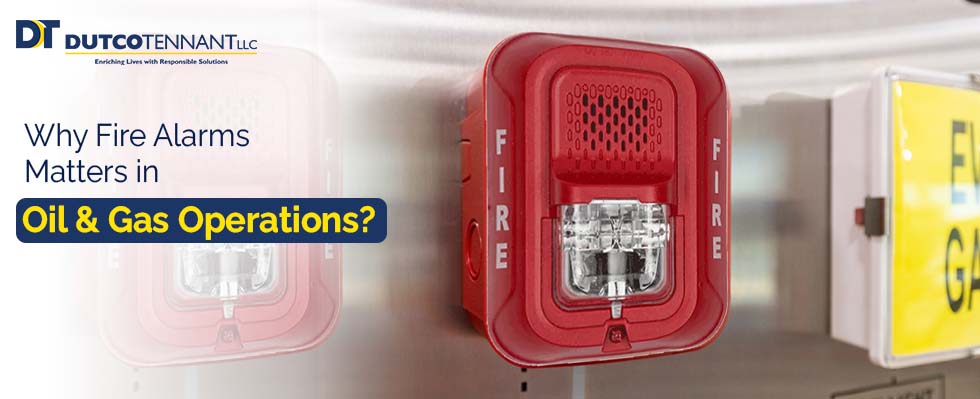
Fire Alarm Systems: A Must-Have Solution in Oil & Gas Operations
As far as the hazardous work environment goes, the oil and gas industry ranks pretty high on the list. There’s increased risks of fires and explosions due to the presence of flammable materials, extreme temperatures and heavy-duty machineries.
The prioritisation of ensuring workplace and fire safety is inevitable in such industries. Therefore, in high-risk sectors like oil and gas, use of fire alarm systems is common and necessary.
But they aren’t just a safety measure but serve the purpose for a variety of aspects. Let’s explore how these systems are regarded to be a must-have solution.
Why Are Fire Alarm Systems Vital in Oil & Gas Operations?
High-Risk Environment
The presence of hydrocarbons, volatile gases, and combustible chemicals makes oil and gas facilities highly susceptible to fires. These systems, especially industrial fire alarm systems act as the first line of defence by providing early detection of potential fire hazards.
Ensuring Worker Safety
In the event of a fire, quick evacuation is essential. Fire alarm systems immediately alert workers, giving them time to safely evacuate and minimise injury risks.
Protecting Equipment and Assets
Advanced fire detection systems not only warn about a fire but also trigger automated systems like fire suppression units to activate. Automatic action as such helps in reducing damage to costly machinery and infrastructure.
Compliance with Industry Standards
Regulatory bodies like OSHA and NFPA mandate the use of fire detection and alarm systems in hazardous industries. Compliance ensures operational continuity and avoids legal liabilities.
Key Features of Top-Quality Fire Alarm Systems
To ensure emergency response planning works out well in the oil and gas industry, you need to invest in top quality systems. At Dutco Tennant LLC, we distribute products from trusted brand Honeywell. They have key features which are —
Advanced Detection Technology:
Utilises a range of sophisticated sensors, including smoke, heat, and gas detectors, to deliver rapid and accurate fire detection.
Scalable Solutions:
Offers flexible configurations that can be tailored to meet the specific needs of small businesses, large commercial properties, and industrial facilities.
Seamless Integration:
Compatible with other Honeywell systems and third-party devices, enhancing overall safety and operational efficiency.
User-Friendly Interface:
Designed for intuitive operation, enabling quick response and easy management by personnel of all experience levels.
Remote Monitoring Capabilities:
Enables notifications and real-time surveillance, allowing for quick action from any location.
Conclusion
In the oil and gas sector, where safety challenges are immense, fire alarm systems are indispensable. They safeguard human lives, protect investments, and ensure compliance with stringent safety regulations.
Investing in a reliable fire alarm system is not just a regulatory requirement but a commitment to creating a safer work environment. It is by leveraging advanced fire detection technologies, oil and gas operators can proactively address fire risks. Hence, ensuring both operational continuity and environmental stewardship.
Make safety your priority—choose robust fire alarm systems for your facility today.
